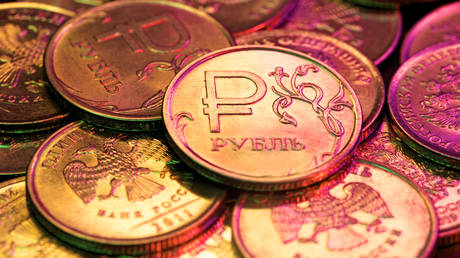
Ruble strengthens to five-month high
The currency has been rallying due to increased sales of foreign earnings by exporters
The Russian ruble continued to rally against major currencies on Tuesday, jumping to its highest against both the dollar and the euro since late June, trading data from the Moscow Exchange (MOEX) shows.
The ruble had risen to 87.9 to the US dollar as of 9:00am GMT, its highest exchange rate since June 30. The ruble also gained against the European single currency, trading at around 96.5 rubles to the euro, also a five-month high.
Experts note that the ruble is strengthening amid higher sales of foreign currency earnings by Russian exporters against the backdrop of increased export revenues. A mandatory measure ordering exporters to sell their foreign revenues and repatriate the proceeds was introduced by the Russian government last month. The ruble has since strengthened by 15% against the dollar and by 10% versus the euro.
The currency has also been bolstered by the recent key rate hike from the central bank and the general weakening of the dollar in the international foreign exchange market, analysts say. Another factor is lower demand for foreign currency on the domestic market amid a drop in imports. As of the end of October, Russian imports decreased by $1.8 billion, or more than 7%, compared to the previous month, and amounted to $22.9 billion, according to a preliminary assessment by the central bank.
Analysts expect the ruble’s rally to continue in the near term. The head of the financial markets department at PSB bank, Evgeniy Loktyukhov, expects the Russian currency to strengthen further by the end of the week.
READ MORE: Russia-China de-dollarization almost complete – deputy PM
“[It] will depend primarily on the activity of exporters and their preparation for tax payments… We are inclined to expect a stable supply of currency on their part, sufficient to reduce the dollar in the direction of 83-85 rubles closer to tax payments [on November 28] amid limited demand for currency from importers, restrained by high key rate,” he stated in a note on Tuesday.
For more stories on economy & finance visit RT’s business section

